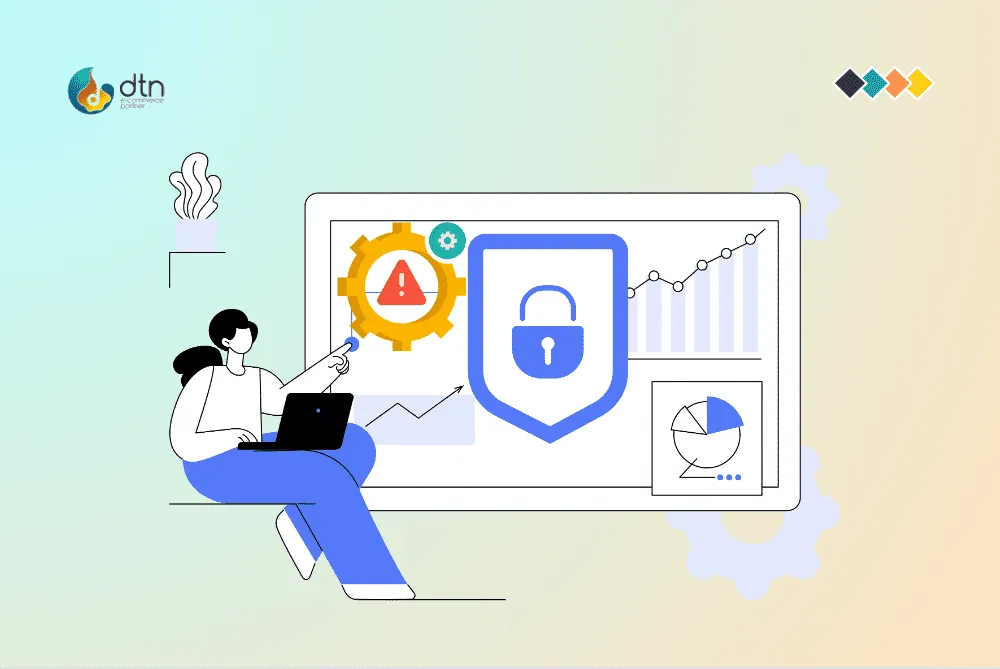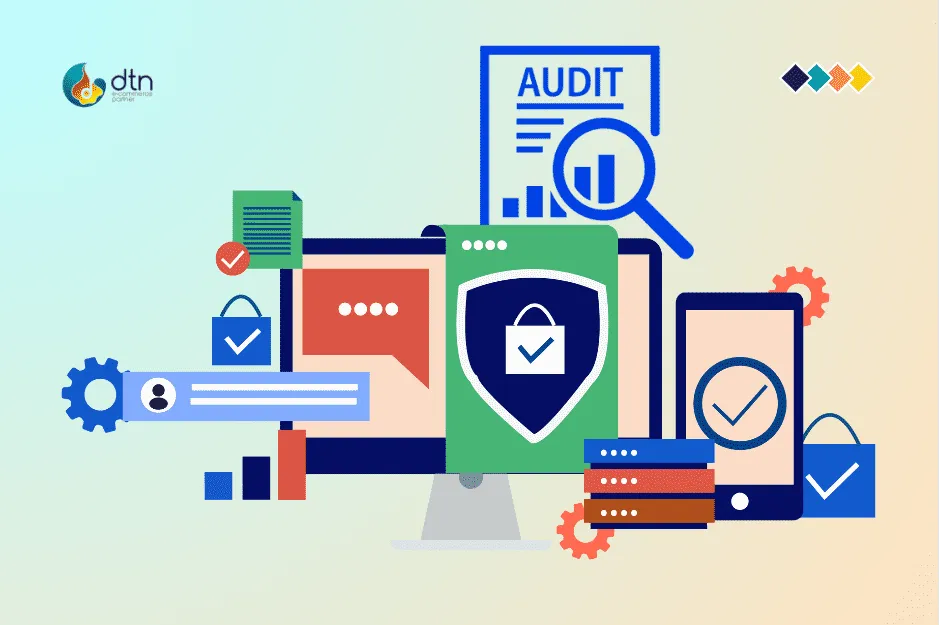With the rise of online shopping, businesses are thriving, and consumers are enjoying the convenience of purchasing products from the comfort of their own homes. However, this surge in e-commerce has also brought about a significant increase in cyber threats and data breaches. It has become imperative for e-commerce businesses to prioritize cybersecurity to protect sensitive customer data and maintain customer trust.
Table of Contents
The Risks of Cyber Attacks on E-commerce Businesses
E-commerce businesses are vulnerable to various types of cyber attacks, including:
- Malware and Ransomware Attacks: Malware and ransomware attacks can bring an e-commerce website to a grinding halt, resulting in significant revenue losses.
- Phishing Attacks: Phishing attacks can lead to the theft of sensitive customer information, including credit card numbers and passwords.
- SQL Injection Attacks: SQL injection attacks can compromise sensitive customer data, including names, addresses, and payment information.
- Denial of Service (DoS) Attacks: DoS attacks can overwhelm an e-commerce website, making it inaccessible to customers and resulting in revenue losses.

The Consequences of a Data Breach
- Financial Losses: Data breaches can result in significant financial losses, including the cost of notifying affected customers, providing credit monitoring services, and paying regulatory fines.
- Damage to Reputation: A data breach can damage an e-commerce business’s reputation, resulting in a loss of customer trust and loyalty.
- Legal Liability: E-commerce businesses may be held legally liable for failing to protect customer data, resulting in costly lawsuits and fines.
- Regulatory Fines: Regulatory bodies, such as the General Data Protection Regulation (GDPR), can impose significant fines on e-commerce businesses that fail to comply with data protection regulations.

Cybersecurity Best Practices for E-commerce Businesses
To protect sensitive customer data and maintain customer trust, e-commerce businesses must prioritize cybersecurity. Here are some cybersecurity best practices for e-commerce businesses:
- Implement SSL Encryption: Use Secure Sockets Layer (SSL) encryption to protect customer data during transmission.
- Use Strong Passwords and Authentication: Implement strong password policies and multi-factor authentication to prevent unauthorized access to sensitive data.
- Keep Software Up-to-Date: Regularly update software, plugins, and themes to prevent exploitation of known vulnerabilities.
- Use a Web Application Firewall (WAF): Implement a WAF to detect and prevent common web attacks, such as SQL injection and cross-site scripting (XSS).
- Implement Incident Response Planning: Develop an incident response plan to quickly respond to security incidents and minimize the impact of a data breach.
- Provide Cybersecurity Awareness Training: Provide cybersecurity awareness training to employees to prevent human error and social engineering attacks.

Third-Party Risk Management
E-commerce businesses often rely on third-party service providers, such as payment gateways and shipping providers. However, these third-party providers can also introduce cybersecurity risks.
- Conduct Due Diligence: Conduct thorough due diligence on third-party service providers to assess their cybersecurity posture.
- Implement Contractual Obligations: Include contractual obligations that require third-party service providers to maintain adequate cybersecurity measures.
- Monitor Third-Party Access: Closely monitor third-party access to sensitive data and systems.

Conclusion
Cybersecurity is a critical component of e-commerce data protection. E-commerce businesses must prioritize cybersecurity to protect sensitive customer data and maintain customer trust. By implementing robust cybersecurity measures, e-commerce businesses can reduce the risk of cyber attacks, protect sensitive customer data, and maintain a competitive edge in the market.
Don’t wait until it’s too late
Implement robust cybersecurity measures today to protect your e-commerce business and customers from cyber threats. Conduct a cybersecurity audit to identify vulnerabilities and address potential security risks. Prioritize cybersecurity awareness training for employees to prevent human error and social engineering attacks. Remember, cybersecurity is a shared responsibility, and it’s time to take control of your e-commerce business’s cybersecurity.
By following these cybersecurity best practices, e-commerce businesses can reduce the risk of cyber attacks, protect sensitive customer data, and maintain customer trust. Remember, cybersecurity is a critical component of e-commerce data protection, and it’s time to take action.
Frequently Asked Questions
We’ve compiled a list of answers to common questions.
What types of cyber attacks are e-commerce businesses vulnerable to?
E-commerce businesses face various cyber threats, including malware and ransomware attacks, phishing attacks, SQL injection attacks, and denial of service (DoS) attacks.
What are the consequences of a data breach for e-commerce businesses?
The consequences can include financial losses from operational disruptions and fines, damage to the business’s reputation, legal liabilities, and regulatory fines from bodies like the GDPR.
What are some cybersecurity best practices for e-commerce businesses?
- Implement SSL Encryption: Protect customer data during transmission.
- Keep Software Up-to-Date: Regularly update software, plugins, and themes.
- Use a Web Application Firewall (WAF): Detect and prevent common web attacks.
- Conduct Regular Security Audits: Identify and address vulnerabilities.
- Implement Incident Response Planning: Quickly respond to and mitigate the impact of data breaches.
- Provide Cybersecurity Awareness Training: Educate employees to prevent human error and social engineering attacks.
How can e-commerce businesses manage third-party cybersecurity risks?
- Conduct Due Diligence: Assess the cybersecurity measures of third-party service providers.
- Implement Contractual Obligations: Ensure third-party providers maintain adequate cybersecurity measures.
- Monitor Third-Party Access: Closely monitor third-party access to sensitive data and systems.
What steps should e-commerce businesses take to protect their data and customers?
E-commerce businesses should implement robust cybersecurity measures, conduct regular audits, prioritize employee training, and continuously monitor and improve their cybersecurity posture. Conducting a cybersecurity audit and providing awareness training are essential proactive steps.



